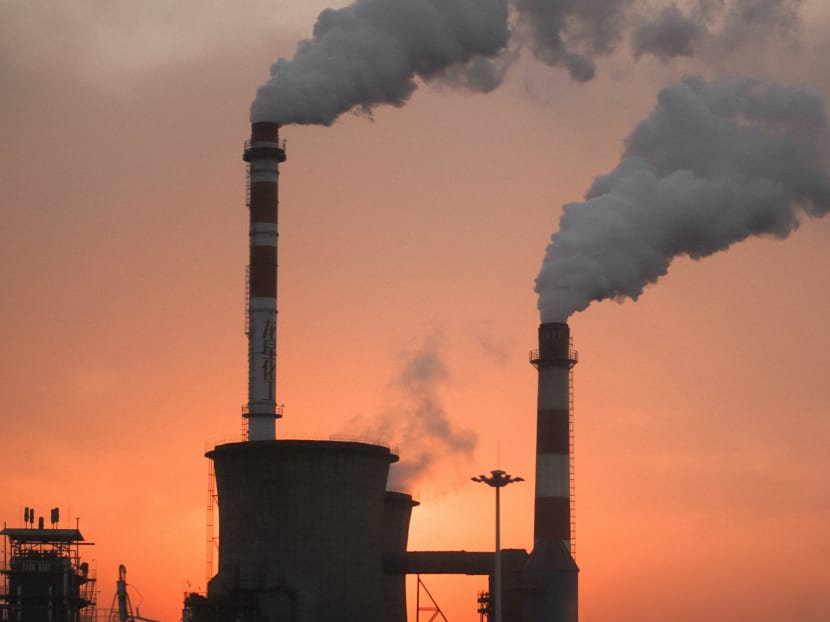Global effort to mitigate climate change 'inadequate' amid fraught international order, geopolitics: PM Lee
WASHINGTON, DC — Global efforts to mitigate climate change will be "inadequate", which is why Singapore has to work on adapting to the environmental crisis, Prime Minister Lee Hsien Loong said on Wednesday (March 30).

While Singapore is trying to mitigate climate change, too, global initiatives matter more as the Republic produces only a small fraction of global emissions, Mr Lee said.
- Prime Minister Lee Hsien Loong gave a dire prognosis of global climate mitigation measures, calling them 'inadequate'
- Speaking at a dialogue with a US think-tank, he noted that the success of mitigation efforts to control carbon emissions depends on the international order and geopolitics, which remain fraught
- Mr Lee said Singapore is working on adaptation efforts
WASHINGTON, DC — Global efforts to mitigate climate change will be "inadequate", which is why Singapore has to work on adapting to the environmental crisis, Prime Minister Lee Hsien Loong said on Wednesday (March 30).
"The scientists are quite unambiguous (about this). They are quite polite and hedged in their views, but their directions have consistently been more extreme than their predictions for quite some time now," said Mr Lee at a dialogue organised by the Council on Foreign Relations in Washington, DC.
The Republic targets to reach net-zero carbon emissions by 2050, and has formulated a whole-of-nation green plan to accelerate decarbonisation and sustainability efforts by 2030.
While Singapore is trying to mitigate climate change, too, global initiatives matter more as the Republic produces only a small fraction of global emissions, he said.
"We do our part, but we know that we do not determine the outcome, and the world will not do enough," said Mr Lee, adding that he was "very worried" about the issue.
He was responding to Mr Richard Haass, president of the Council on Foreign Relations, who had asked whether the renewed emphasis on energy security in Europe, which depends on Russian gas exports, has pushed climate change off the global agenda.
An audience member also asked Mr Lee how Singapore, as well as the rest of the world, would fare in the climate emergency.
Responding, Mr Lee said much depends on the international order and geopolitics.
"If you are at war with Russia, you will not be able to agree with Russia on reducing emissions, much less apportioning responsibility for cutting carbon," said Mr Lee.
It is also challenging even when there is no war, such as the case with China, he added. He noted that the US Special Presidential Envoy for Climate John Kerry has difficulties making progress because of the fraught relations between both countries.
"You have explicitly said you are not prepared to trade off the climate against other issues. Then the Chinese say, well, what is the point of this? I think it is going to be very difficult, and we are going to fall short of their goals — and their goals themselves are not high enough — and we should prepare for that," said Mr Lee.
Cutting off energy dependence on Russia will also have an impact on Europe, he added.
"But unless the Russian oil disappears from the world and they themselves do not consume it, it is going to pop up somewhere else. From the climate point of view, that does not solve the problem," said Mr Lee.
Without nuclear energy, it will be "very difficult" for Europe to achieve net-zero emissions, he said.
Responding to another question about geo-engineering projects to counteract global warming, Mr Lee said pilot projects are possible, though the situation remains dire.
"It is one of those things where you are boiling the frog and therefore, no political system is able to respond vigorously enough, because today's problems are always more urgent than the climate change challenge," said Mr Lee.
Asked for the Singapore Government's policy on climate change, given that mitigation measures are unlikely to succeed, Mr Lee said Singapore is working on adaptation measures, which are ways to allow people to live with environmental changes such as rising tides.
"If we are talking about a 100-year timeframe, I have 100 years to solve the problem and I have the wherewithal to do it," he said, referring to his 2019 National Day Rally speech, in which he mentioned that Singapore would probably need to spend S$100 billion over 100 years to finance climate adaptation measures.
"We can live with it — you can build polders, you can build dikes, you can reclaim... and we have the resources... But please understand that 100 years is not the endpoint, it is just the first milestone — this is going to continue for centuries," said Mr Lee.











